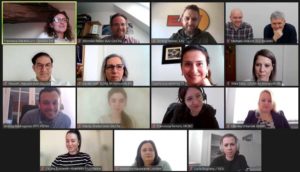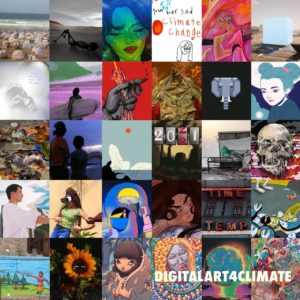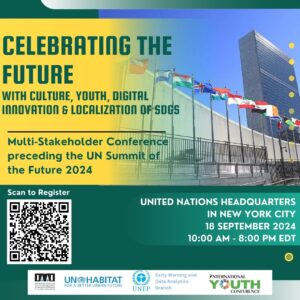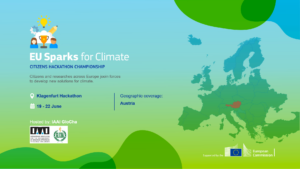International Workshop: Mobilize Diaspora 4SD – Mobilization of Intellectual and Financial Resources from Diaspora for Knowledge Based Sustainable Development in SEE, 12.10.2011, Sarajevo, Bosnia and Herzegovina
International Workshop
MobilizeDiaspora4SD
Mobilization of Intellectual and Financial Resources from Diaspora
for Knowledge Based Sustainable Development in SEE
Date & Venue: 12 October 2011, Sarajevo, Parliament of Bosnia and Herzegovina
(Pre-Conference event of the TAIEX conference “Emigration Issues in the Western Balkans – joint approach to linking migration and development of the countries of origin“ of Ministry for Human Rights and Refugees of Bosnia and Herzegovina (Department for Emigration/Diaspora)
Co-organizers:
- Austrian Science and Research Liaison Office Ljubljana www.aso.zsi.at
- Regional Cooperation Council, Sarajevo
- UNESCO Venice Office www.unesco.org/venice
- Center for e-Governance Development in SEE CeGD Ljubljana www.cegd.eu/
- Ecole Polytechnique Fédérale de Lausanne (EPFL) http://cooperation.epfl.ch/
- International Association for the Advancement of Innovative Approaches to Global Challenges Vienna – Ljubljana www.glocha.info
- Ministry for Human Rights and Refugees of BiH – Department for Diaspora
Background and Objectives of the Workshop:
This workshop is a follow-up to the International Workshop “Scientific Diaspora and ICT- Using Modern Information and Communication Technologies to Harness the Potential of Southeast Europe’s Scientific Diaspora” organized June 2009 by ASO Ljubljana, RCC, UNESCO Venice Office and CeGD (see http://www.aso.zsi.at/bg/veranstaltung/3184.html for agenda, list of participants, presentations etc.).
The rationale of the workshop is based on the fact that
- highly skilled professionals from the fields of science, technology and business have emigrated from Southeast European countries in extremely high numbers
- this “brain drain” is a substantial systemic problem for science, education and innovation systems in Southeast Europe and therefore
- ways have to be found to reconnect highly skilled emigrants with sustainable development efforts in their countries of origin
At the 2009 workshop the focus has been on Brain gain programmes, virtual mobility and diaspora knowledge networks, Web 2.0 opportunities for cross sectoral and international e-collaboration and Web 2.0 applications in RTD governance as a new way / new culture of participatory and interactive delivery of public services. There has been strong consensus at 2009 workshop that involving the human resources of diaspora in economic and social development of SEE countries is extremely important and that projects, programs and institutions need to be developed to facilitate the mobilization of intellectual and financial resources as well as social capital of diaspora for sustainable development of their countries of origin.
At the 2011 follow-up workshop we aim at outlining concrete project initiatives on regional level related to diaspora resources and sustainable development in SEE
- explore collaborative ways through which a research consortium gathering researchers and other key actors from different EE countries could be established. The aim of it would be to identify funding opportunities to jointly advance empirical and policy oriented research on skilled mobility, diaspora engagement and development impact in the EE region[1].
- discuss the proposal of forging a multi-stakeholder partnership with diaspora on knowledge based sustainable development in Southeast Europe,
- looking at the feasibility of establishing a network of Global Challenges (GloCha) centers in SEE countries as new institutional framework for organizing such a multi-stakeholder partnership for sustainable development that would include diaspora
- outlining a common information and documentation system for documentation and collaborative (web 2.0) assessment of the relevance of the different types of contributions (knowledge, volunteerism/time, funding, in kind contributions, ..) for sustainable development and
- discuss the role of public finance instruments (matching funds, tax benefits, etc.) that would encourage engagement of foreign/diaspora and domestic stakeholders in such collaborative sustainable development efforts.
- discuss possibilities to involve the private sector in diaspora related development efforts in SEE
The Sarajevo workshop “MobilizeDiaspora4SD – Mobilization of Intellectual and Financial Resources from Diaspora for Knowledge Based Sustainable Development in SEE” and the plan of establishing a network of GloCha Centers in SEE have strong links with the preparatory process for United Nations Conference on Sustainable Development (Rio+20) in Rio de Janeiro in June 2012 www.uncsd2012.org and shall provide input to UNESCO Science, Technology and Innovation Global Assessment Program
With the initiatives that will be discussed at MobilizeDiaspora4SD workshop in Sarajevo, Southeast European countries can develop a role model of an innovative and inclusive (diaspora!) multistakeholder partnership for sustainable development which can be presented at Rio+20 conference and later on replicated in other parts of the world.
The potentials of GloCha centers as local focal points of a multilevel governance multi-stakeholder innovation system towards sustainable development have been discussed also at IAAI & ASO Ljubljana international conference “Knowledge, Youth and Global Commons – Orienting Knowledge Systems and Inter-Generational Relations towards Sustainable Development and Rio+20” , 15. & 16. September 2011, Maria Loretto Palace, Klagenfurt am Wörthersee (Austria) https://www.glocha.info/iaai/index.php/conference2011 with very favorable assessments from leading experts in the fields of knowledge and management of societal change processes.
Another test of IAAI/GloCha concepts – with favorable outcome – has been the workshop “Rio+20 – A Window of Opportunity for a Multi-Stakeholder Partnership on Global Commons Growth” at 64th UN DPI NGO conference “Sustainable Societies; Responsive Citizens” Bonn/Germany, Monday, 5 September, 2011 https://www.glocha.info/index.php/latest-news/149-bonn-2
[1] The current joint research project on the scientific diaspora of the Republic of Moldova including the creation of a website for exchange with the scientific and skilled professional communities in the home country carried out by the Ecole Polytechnique Fédérale de Lausanne (EPFL) and the Academy of Sciences of Moldova (ASM) could be taken as a good starting point to extend collaboration for further research in other countries of the EE region.
———————————————————————————
Deadline for the registration is 6.10.2011 (Closed)
We intend to offer also a limited financial assistance (covering hotel costs in Sarajevo (2 nights)) for the Scientific Diaspora Experts from South Eastern European Countries (SEE). Please send an email with information about your institutional background, relevant qualifications and motivations for attendance in case you would like to receive support for participation in the conference to aso-ljubljana @zsi.at.
Gallery
{gallery}gsarajevo1{/gallery}






